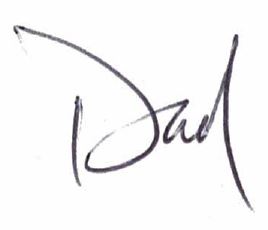
Jane Austen’s tale about Elizabeth Bennet and Mr. Darcy’s epic love story was only possible when each character had to put aside their pride and unlearn their prejudices so that they could come to accept the other for who they really are. Two hundred years later, it is still relevant. Our collective society has seemingly taken two steps forward in many areas yet three steps back in some.
Nothing exposed the inequity of our global village like COVID-19 vaccine distribution. While rich countries like Canada horded and even took supplies for COVAX surplus destined to help poorer countries, billions wondered when they will be offered the first shot as citizens of richer countries received their fourth! Equally arrogant was the Serbian tennis star, Novak Djokovic, who knowingly entered Australia unvaccinated; remained unmasked during COVID positivity a few weeks prior and lied about having traveled to multiple countries before entry to defend the Australian Grand Slam title. He was eventually deported by the Australian government but not before attempting to argue that the rules didn’t apply to him. But the country’s adherence to public health interest did not apply when their own Australian actress Nicole Kidman flew into Hong Kong for filming and was seen in public shopping, effectively contravening the mandatory quarantine period. Clearly, status and money played a factor in just these two examples alone.
Perhaps we should delve back into the text to see how Miss Elizabeth Bennet overcame her arrogance to high society as an investigation into how we behave in modern society. Bennet initially resented the aristocracy of Darcy as he had both rank and wealth. Bennet’s family had neither and so Elizabeth felt justified in her resentment toward Darcy by maintaining equally matched arrogance. Despite Bennet and Darcy’s unequal social status, it is revealed that they are not remarkably unlike. The more we see each other as different and separate, the more we perpetual the us vs. them belief.
![]()
Ms. Austen’s stories reflect the human condition: we are uncertain in ourselves, reliant upon external authorities, needing validation from others and very tentative in our own choices.
It was demonstrated amply that Elizabeth self-indulgent unhappiness was also self-intended. She had a lot of help also in that even her own mother tried to convince Elizabeth to lower her standards as another suitor, Mr. Collins, tries to persuade her to accept happiness now for a life of unfulfillment later. There were other actors who remain blockers to the protagonist’s struggle citing that she’s simply not worthy and hence delaying Elizabeth’s reconciliation with Darcy. Truly, the company Elizabeth kept continued to reinforce her stubbornness and clouded her ability to see the true versions of authenticity.
It wasn’t until near the end of the novel that Elizabeth truly understood the reasons for Darcy’s snobbery and meddling in the affairs of others. For much of the story, the anger and bitterness built and culminated until Elizabeth’s pride refused Darcy’s proposal as she accused him of breaking up Jane and Bingley’s happiness and of denying Wickham his inheritance. But Elizabeth eventually discovered that Darcy’s actions were made as Jane did not return Bingley’s affection and he had to isolate Wickham’s squandering ways to protect others from being betrothed to him. Only then did Elizabeth finally see Darcy’s kindhearted intentions. Just because we disagree with another, it does not make them wrong. Often, patience and empathy will reveal the truth to all. Unfortunately, our world currently has a shortage of both.
The reason why such tales are timeless and have relevance today as they will be two hundred years from now, is that Ms. Austen’s stories reflect the human condition. We are uncertain in ourselves, reliant upon external authorities, needing validation from others and very tentative in our own choices. It is no wonder that our attention typically shifts to the loudest voice. All of this is a distraction of course and ultimately, we are our protagonist in our own narratives. We each will awaken from our own stories, enlightened or not. Perhaps the most hopeful way of ending this article and an invitation to everyone is to conclude with a quote from another of Jane Austen’s novel, “It isn’t what we say or think that defines us, but what we do.”

